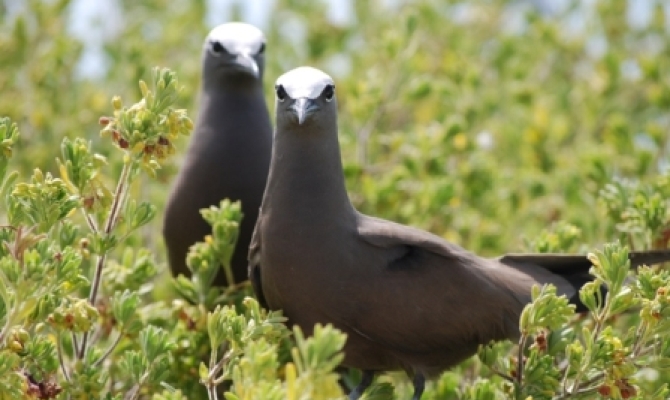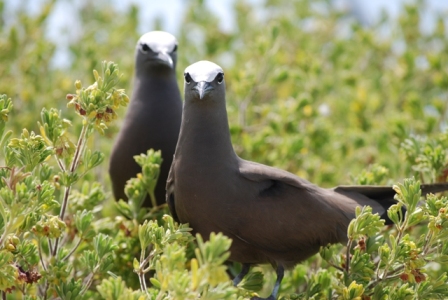
19 March 2012 -- Invasive species workers from around the Pacific gather on the island of Kiritimati, Kiribati this week (March 22-27) for the 3rd Pacific Invasives Learning Network (PILN) meeting.
The week-long meeting, which is being hosted by the Secretariat of the Pacific Regional Environment Programme (SPREP) and the Government of Kiribati will see over forty participants discuss invasive alien species.
"Invasive alien species are the leading cause of extinction to animals and plants on our islands", says Dr Posa Skelton, the meeting organiser.
"Invasive species are the silent killers, creeping up and decimating our native species. The sudden disappearance of Pacific because of mongooses or brown-tree-snakes demonstrates the seriousness of invasive species", adds Dr Skelton.
The meeting will discuss issues that are of high priority to the participants, such as biosecurity, regional collaboration, funding and integrating invasive species into national development plans.

"We can't protect our islands by ourselves; we need all the help we can get. Local communities are as much affected by invasive species as well as governments, and they are the force that we need to support us," says Ratita Bebe, the Wildlife Officer of Wildlife & Conservation Unit, MELAD from Kiritimati island.
"The meeting will also give us an opportunity to learn and share experiences with our brothers and sisters from the Region" adds Bebe.
The Pacific Invasives Learning Network (PILN) is a country and island level network that was established in 2004 on the insistence of SPREP member countries.
The network has 15 invasive species teams from 13 countries, and the teams are made up of different government agencies and sectors, non-governmental organisations and civil society.
The teams work on identifying priority invasive species to address, and identifying capacity needs and resources to effectively manage invasive species.
Kiritimati island, is one of the main port entry to the Phoenix Islands Protected Area (PIPA). It is a special island that host one of the biggest nesting grounds of Pacific seabirds, which a few decades earlier was devastated by Pacific rats and feral cats.
The PILN meeting on Kiritimati is an opportunity that will help to celebrate and showcase the hard work of the PILN team in the Pacific Islands region.
The meeting is made possible through the financial support of the Fonds Pacifique, the Critical Ecosystem Partnership Fund administered by the Conservation International, SPREP and the Nature Conservancy and the Government of Kiribati.
For more information, please contact Dr. Posa Skelton at [email protected]